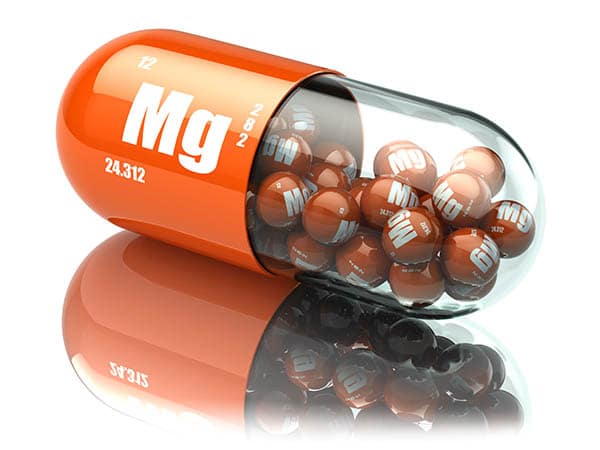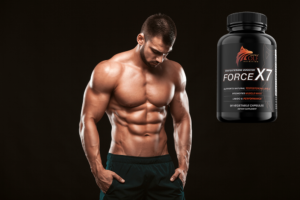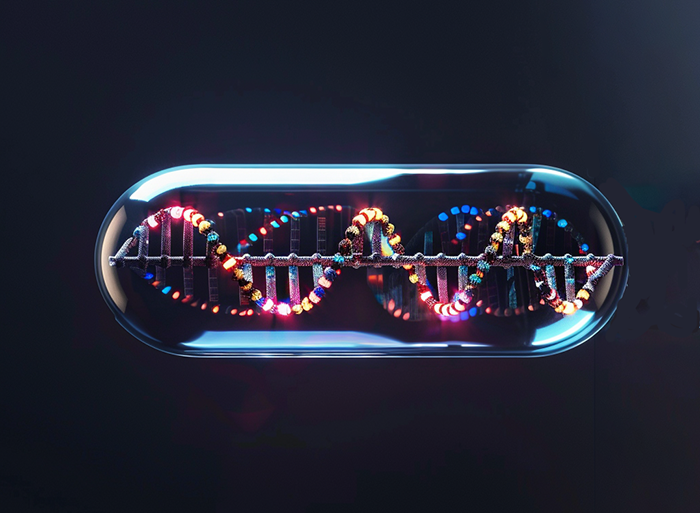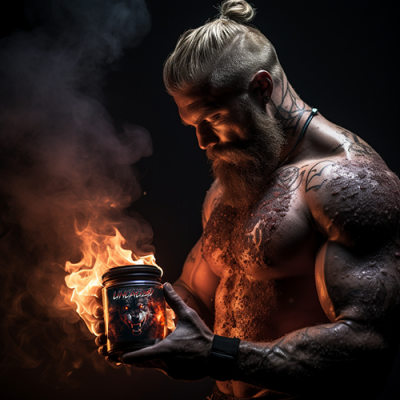
Everyday Chemicals Are Screwing Up Your Testosterone
You may have already read my other article on 7 habits which are killing your testosterone. There was a section in that on Water because

Magnesium is responsible for over 300 processes in the human body including testosterone production. Deficiency in the mineral can make you feel like your life and health is seriously falling apart.
Just a few of the multitude of symptoms associated with Mg deficiency include hormone imbalance, weak bones, cardiovascular problems, anxiety, and sleep problems.

While a surplus of magnesium will not result in any increases in testosterone, a deficiency in it can be devastating.
In a 4-week study on both sedentary men and athletes, both groups saw a significant rise in both free and total testosterone levels, upwards of 24% on average.
The athletes actually saw the largest average increase which lends to the idea that exercise along with magnesium supplementation can increase results the most. (1)
Much like boron, Mg appears to bind to SHBG (sex hormone binding globulin) which allows for more free testosterone. (2) However, as the study above points out, total testosterone increased as well.
In another study on 399 older men, researchers discovered that higher serum magnesium levels was directly correlated to higher testosterone levels and IGF-1 (insulin like growth factor) which is extremely anabolic! (3)
Taking a vitamin D supplement along with magnesium has been shown to increase magnesium absorption. (4)
At the same time Mg supplementation has been shown to increase vitamin D absorption. (5)
This is important to know because vitamin D is a powerful testosterone booster as well!

A study published in The Journal of Exercise Physiology gave college football players zinc, magnesium and vitamin B6 everyday and saw significant testosterone boost. (6)
When Mg is taken along with zinc and vitamin B6 the combination is known in bodybuilding communities as the ZMA complex and is well respected as a strong vitamin and mineral combo for testosterone boosting.
Unfortunately, due to a combination of soil degradation, modern diets, and increasing needs with age, magnesium deficiency is becoming a rampant issue. (7)
If that wasn’t enough, exercise also increases the body’s need for even more Mg thanks to its role in stress management, fighting inflammation, and clearing out cortisol.
It is no wonder it has been estimated that as much as 68% of Americans, may be mildly deficient in magnesium. (8)
The recommended daily allowance of magnesium continues to rise for males until the age of 31 when it tops out an astounding 420 mg per day according to the Linus Pauling Institute. (9)
With that said, there are recommended limits on supplementation which tops out at 350 mgs per day for males at least 19 years of age, or you could risk adverse effects.
While mild deficiencies may be common, extreme deficiencies are not, and as far as supplementation goes the Linus Pauling Institute recommends around 100 mg per day.
They believe you should be able to consistently get the rest of the Mg you need each day from the foods you eat. (9)
When levels are taken from deficiency to solid levels, it not only appears to improve the amount of free testosterone in the body but actually increases total testosterone as well.
With a large amount of magnesium needed each day and the difficulty in obtaining it through food, I highly recommend a daily supplement of at least 30 mg.
How much you really need will also depend on how bioavailable it is.
Magnesium is even more effective when taken in the ZMA complex along with vitamin D, BioPerine® and shilajit with fulvic acid to aid in absorption which is why we formulated Force X7 with all 5 elements for maximum bioavailability and T boosting potential.
References:

You may have already read my other article on 7 habits which are killing your testosterone. There was a section in that on Water because

Rhodiola Rosea stands out as a potent adaptogenic herb with a rich history of traditional use and a growing body of scientific research. Revered for

In this comprehensive article, we will explore what L-tyrosine is, its benefits as a pre-workout supplement, the correct dosage, and other potential health benefits it

Betaine anhydrous is becoming an increasingly popular ingredient for pre-workouts. In this article, we will explore the fundamentals of betaine anhydrous, its connection to carnosine,

Beta-alanine is a pre-workout powerhouse. From boosting workout performance to potential anti-aging effects, discover why this amino acid is a favorite among health buffs.

You may have already read my other article on 7 habits which are killing your testosterone. There was a section in that on Water because

Rhodiola Rosea stands out as a potent adaptogenic herb with a rich history of traditional use and a growing body of scientific research. Revered for

In this comprehensive article, we will explore what L-tyrosine is, its benefits as a pre-workout supplement, the correct dosage, and other potential health benefits it

In the ancient wilderness, a legendary creature prowled the untamed lands—a fierce and noble Alpha Wolf. This majestic beast possessed an aura of strength and resilience, leading its pack with unwavering authority.
In a parallel realm, a group of visionary alchemists delved into the mysteries of nature, seeking to create potent elixirs that could unlock the true potential of those who dared to embrace their inner power.
As fate would have it, these paths crossed, and an extraordinary alliance was forged. The Alpha Wolf and the alchemists found common ground in their pursuit of greatness, and thus, Alpha Wolf Nutrition was born.
United by a shared passion for excellence, the Alpha Wolf and the alchemists dedicated themselves to crafting supplements that harnessed the raw force of nature, empowering individuals to conquer their inner and outer worlds.
At Alpha Wolf Nutrition, we draw inspiration from the primal instincts of the Alpha Wolf—the embodiment of strength, leadership, and vitality. We believe that every individual possesses a dormant power within, waiting to be awakened.
Through our meticulously crafted products, we strive to unleash this dormant potential, allowing you to thrive in the face of challenges and embrace your true nature.
Our commitment lies in providing you with the highest quality, scientifically proven ingredients, carefully curated to deliver optimal results. We leave no room for guesswork, basing our formulations on human-backed research to ensure real, tangible benefits. With us, you’ll find no “proprietary blends” or token additions—just pure, effective dosages that fuel your journey to greatness.
Join the pack of Alpha Wolves and embark on a transformative journey with Alpha Wolf Nutrition. Embrace your inner strength, rise above the ordinary, and conquer your aspirations. Unleash the power within and let the spirit of the Alpha Wolf guide you to achieve your highest potential. Welcome to Alpha Wolf Nutrition, where the path to greatness awaits.

Alpha Wolf Nutrition is based on real science and results for the people we serve.
We do not cut corners, we do not hide behind “proprietary blends” and we do not put in worthless amounts of token ingredients to fill up a label.
What we do, is kick ass!

© 2016 – 2023 Alpha Wolf
Discount Applied Successfully!
Your savings have been added to the cart.